Enabling the growth and transformation of Africa’s health sector
Health Ecosystems (HECO)
The Health Ecosystems Pillar enables students and professionals to acquire advanced skills in a broad range of disciplines critical for sustainable health sector growth and transformation in Africa.



Impact of Ecosystems on Africa
To enhance the stability and growth of African health sectors, HECO focuses on increasing the number of primary healthcare workers with stable employment by assembling essential building blocks for these sectors.
The purpose of the Health Ecosystems Pillar is to train and prepare a new generation of talented health professionals with the broad sets of skills required to drive equitable and inclusive growth in Africa.
The Health Collaborative develops these building blocks to ensure that there are always sufficient numbers of highly skilled, work-ready graduates across a spectrum of disciplines responding to Africa’s needs.
Programs under the Health Ecosystem Pillar are tailored to equip young leaders with the perspective, skills, training, and credentials essential for developing innovative, sustainable, and equitable health sectors.
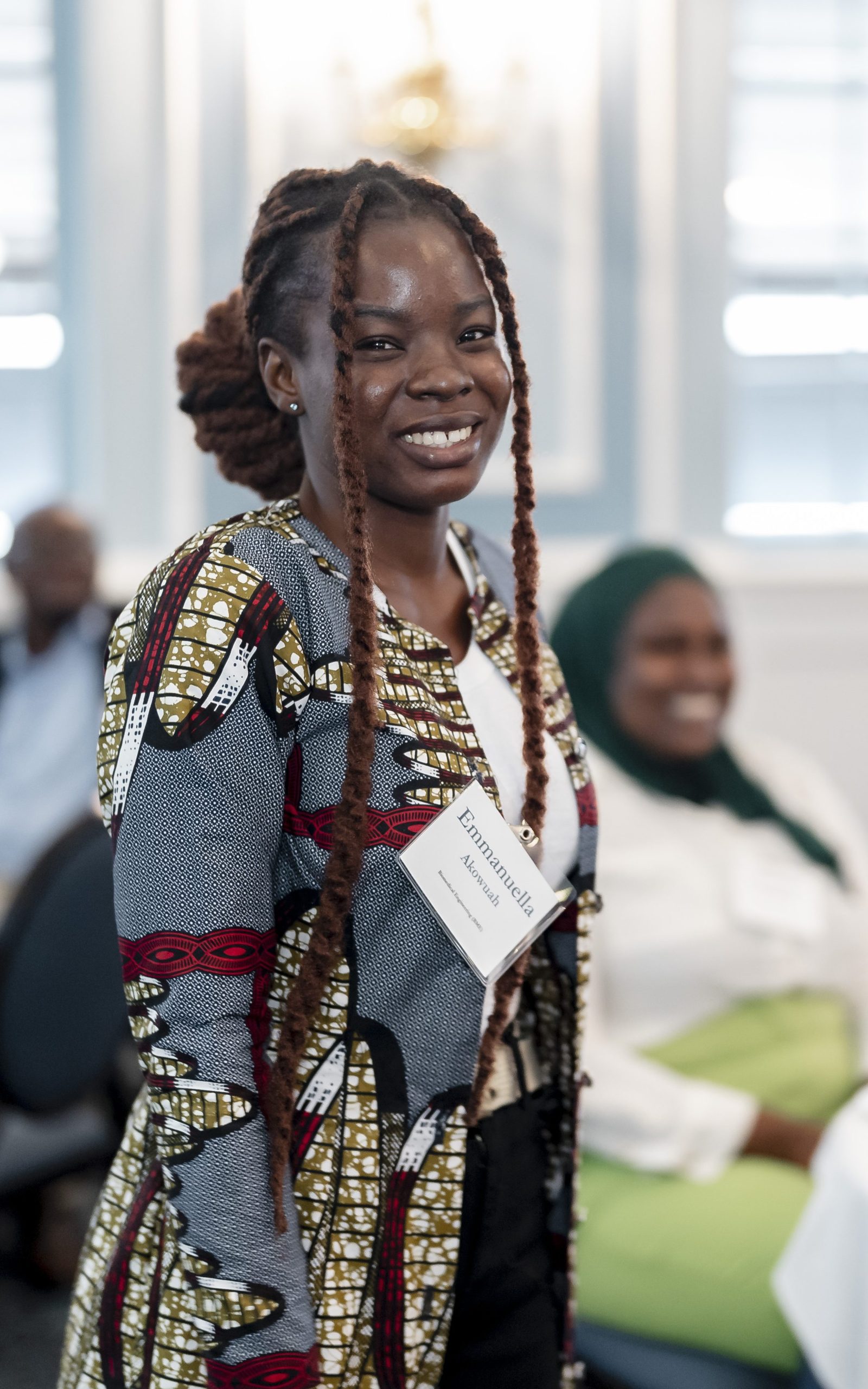
The Power of Partnership

Our Goal
Train professionals across a broad range of disciplines critical for sustainable and equitable health-sector growth.

How HECO and Partners work together
Under the Health Ecosystems Pillar, Health Collaborative Partners work to co-create and train a new generation of talented health professionals with advanced skills required to drive equitable and inclusive growth in Africa.
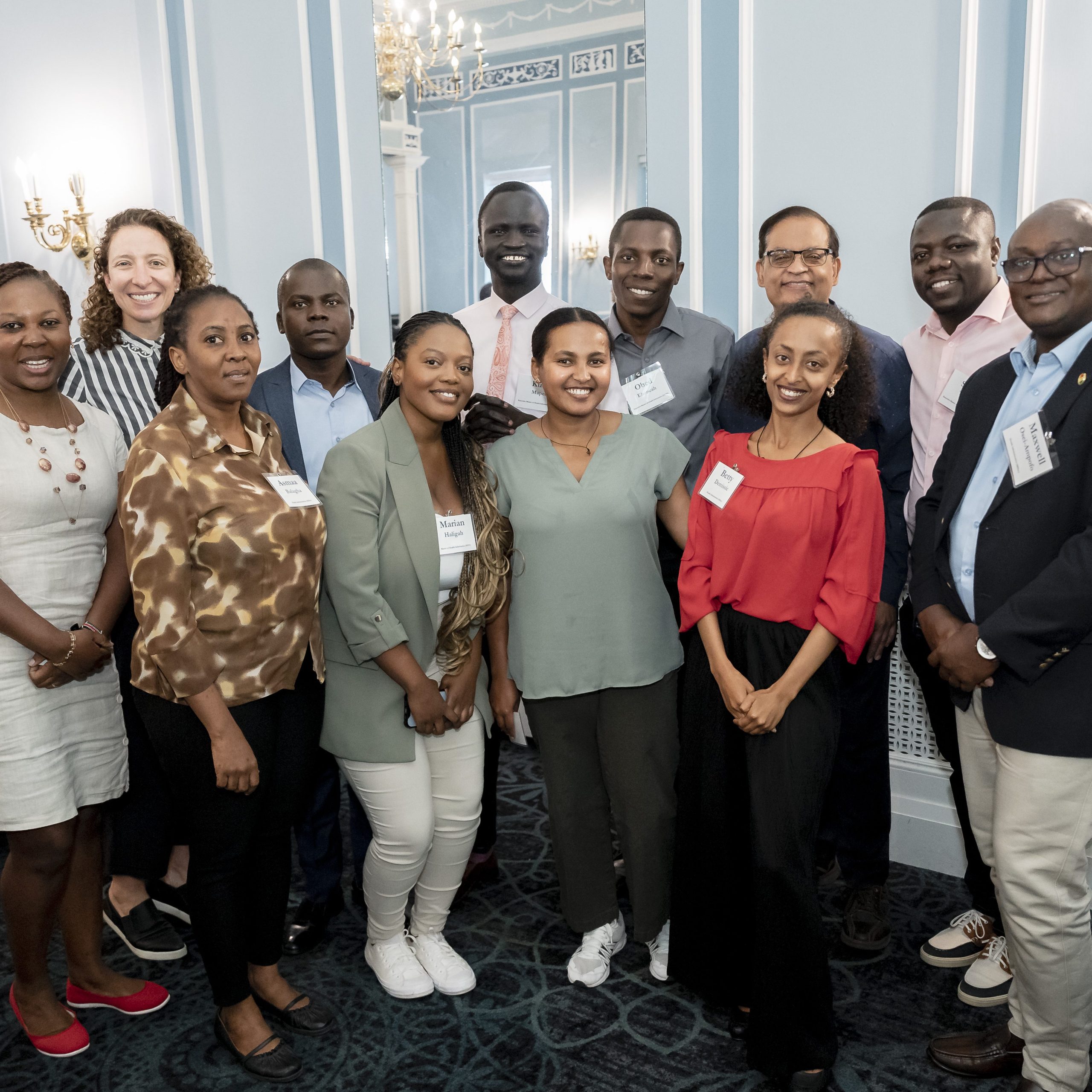


Explore HECO Activities
Programs
Skip scroller contentBSc. in Biological Engineering
Ashesi University
Centre for Reimagined Africa (CRA)
University of Toronto
Collaborative Research: Monitoring, Evaluation, Learning & Adaptation (MELA) @ African Institute for Mathematical Sciences (AIMS)
African Institute for Mathematical Sciences
Collaborative Research: Monitoring, Evaluation, Learning & Adaptation (MELA) @ African Leadership University
African Leadership University
Collaborative Research: Monitoring, Evaluation, Learning & Adaptation (MELA) @ Kwame Nkrumah University of Science and Technology
Kwame Nkrumah University of Science and Technology
Research & Innovation
Skip scroller content
Needs Assessment Research Study
News & Events
Skip scroller content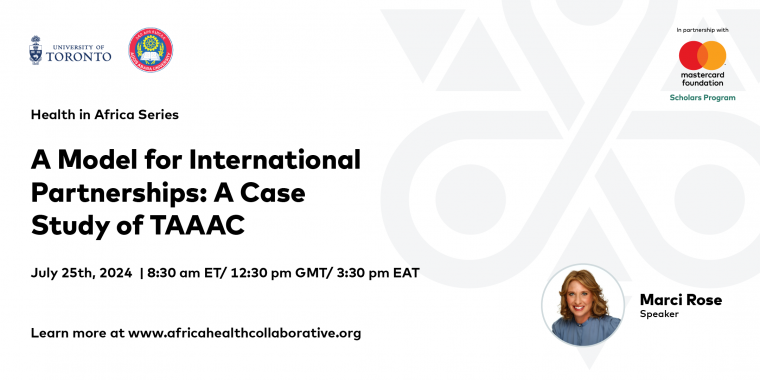
A Model for International Partnerships: A Case Study of TAAAC
The University of Toronto and Addis Ababa University are pleased to invite you to the next episode of the Health in Africa series discussing A Model for International Partnerships.
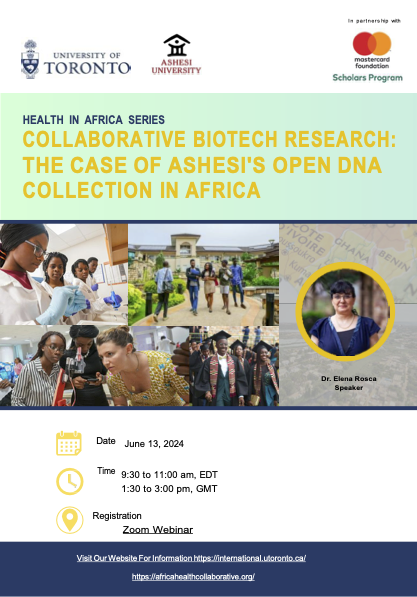
Collaborative Biotech Research: The Case of Ashesi’s Open DNA Collection in Africa
The University of Toronto and Ashesi University are pleased to invite you to the next episode of the Health in Africa series discussing Collaborative Biotech Research: The Case of Ashesi’s Open DNA in Africa.
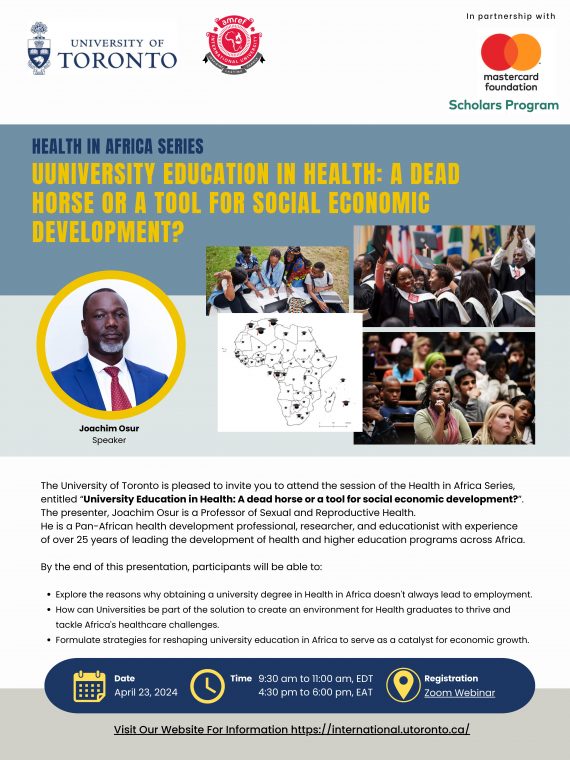
Health in Africa Series – University Education in Health – A Dead Horse or a Tool for Social Economic Development?
The University of Toronto is pleased to invite you to attend the session of the Health in Africa Series, entitled “University Education in Health: A Dead Horse or a Tool for Social Economic Development?” hosted by Joachim Osur, a Professor of Sexual and Reproductive Health at Amref International University.
Celebrating International Women’s Day
For International Women’s Day, women Scholars from the Kwame Nkrumah University of Science & Technology University (KNUST) celebrate the incredible women diligently working within the Health Collaborative to impact lives.
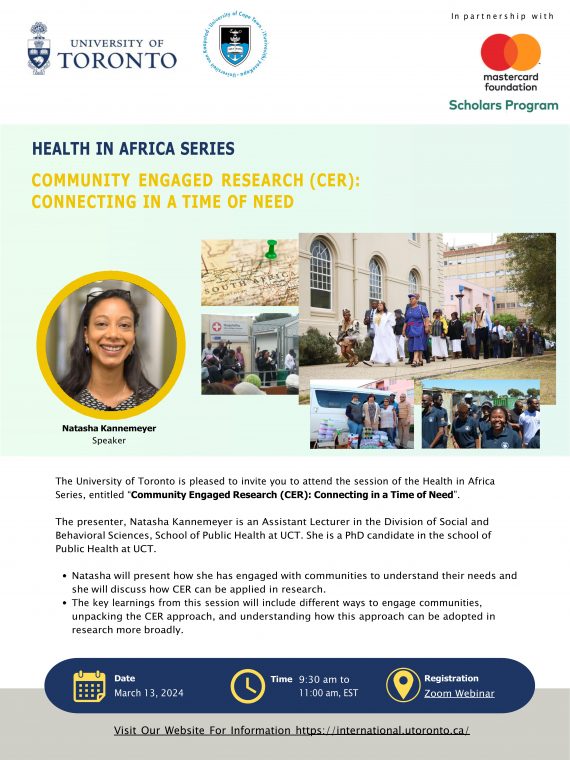
Health in Africa Series – Community Engaged Research (CER): Connecting in a Time of Need
The University of Toronto is pleased to invite you to attend the session of the Health in Africa Series, entitled “Community Engaged Research (CER): Connecting in a Time of Need”presented by Natasha Kannemeyer, Assistant Lecturer in the Division of Social and Behavioural Sciences, School of Public Health at the University of Cape Town.
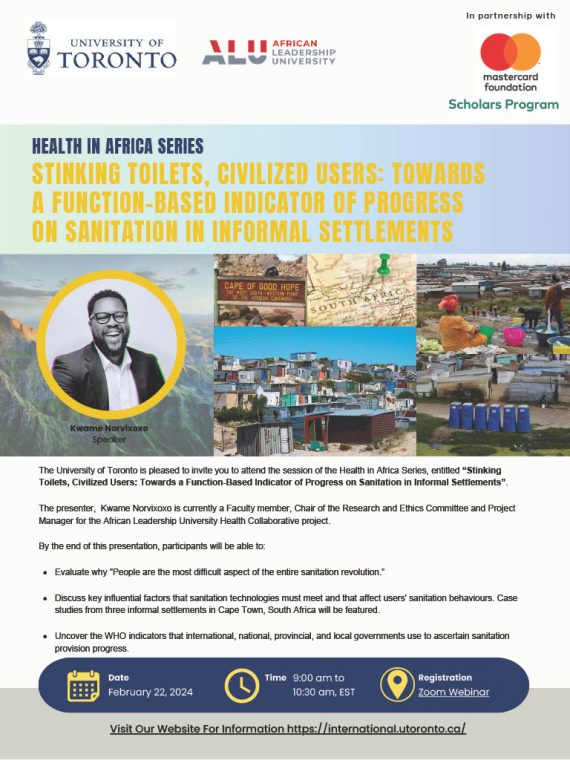
Health in Africa Series – Stinking Toilets, Civilized Users: Towards a Function-Based Indicator of Progress on Sanitation in Informal Settlements
The University of Toronto is pleased to invite you to attend the session of the Health in Africa Series, entitled “Stinking Toilets, Civilized Users: Towards a Function-Based Indicator of Progress on Sanitation in Informal Settlements”, presented by Kwame Norvixoxo, a Faculty member, Chair of the Research and Ethics Committee and Project Manager for the African Leadership University Health Collaborative project.
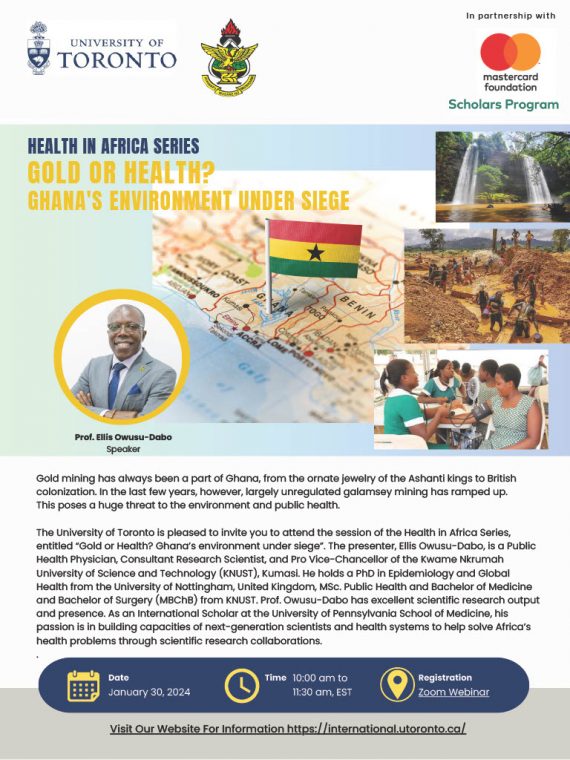
Health in Africa Series: Gold or Health? Ghana’s Environment Under Seige
The University of Toronto is pleased to invite you to attend the session of the Health in Africa Series, entitled “Gold or Health? Ghana’s environment under siege”, presented by Prof. Ellis Owusu-Dabo, a Public Health Physician, Consultant Research Scientist, and Pro Vice-Chancellor of the Kwame Nkrumah University of Science and Technology (KNUST), Kumasi.
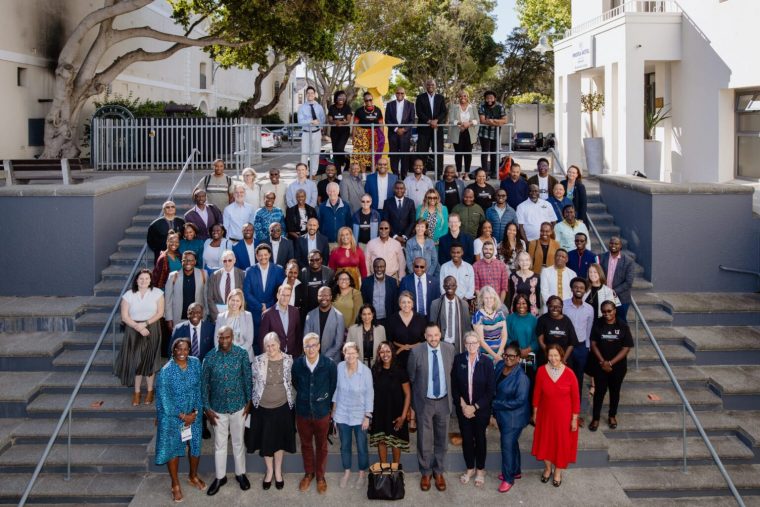
Introducing the Mastercard Foundation’s Africa Higher Education Health Collaborative (AHEHC)
The Mastercard Foundation is proud to introduce the Africa Higher Education Health Collaborative (AHEHC), a pioneering initiative aimed at strengthening primary healthcare across Africa and empowering the continent’s health sector through transformative education and innovation.
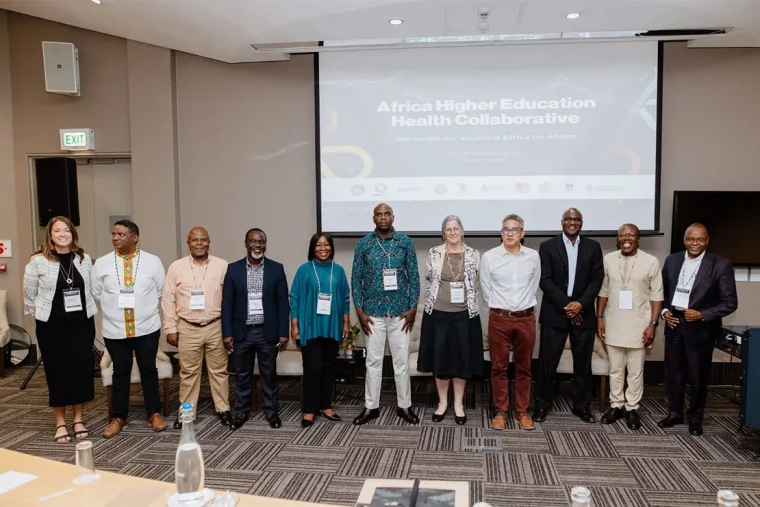
U of T partners with leading African universities and Mastercard Foundation to advance health care in Africa
The University of Toronto, the Mastercard Foundation and a network of leading African universities are embarking on a 10-year initiative to enhance primary health care workforce education, entrepreneurship and innovation across Africa.
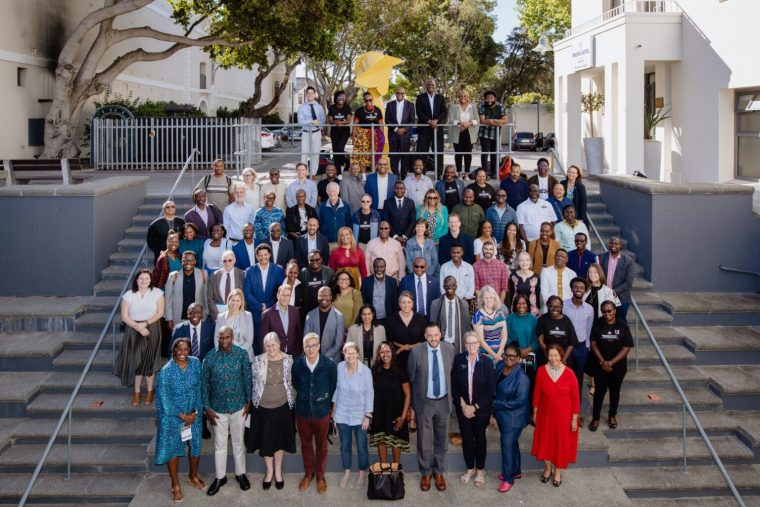
2023 Annual Convening in Cape Town, South Africa
The University of Cape Town (UCT) proudly hosted the inaugural Health Collaborative Convening from October 15th to 17th, 2023, at the scenic Protea Hotel by Marriott, Waterfront Breakwater Lodge in Cape Town, South Africa.
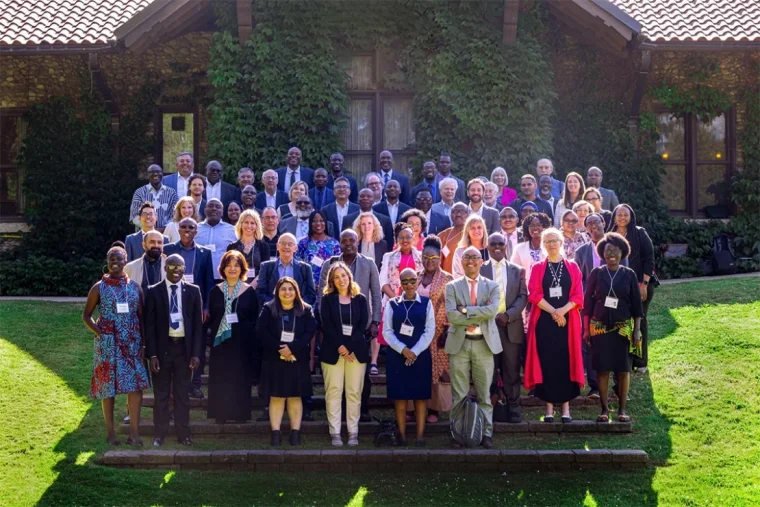
2022 U of T & Africa Summit
In June 2022, the university hosted a two-day summit that brought together representatives from the Africa Higher Education Health Collaborative, and other organizations to discuss ideas for partnerships that address some of the most important issues facing Africa and Canada.

2023 Baobab Summit
The Baobab Summit is a virtual event that celebrates the power of youth leadership, individual action, and positive social change across Africa.
Want to learn more about the research pillar?

Senior Regional Lead
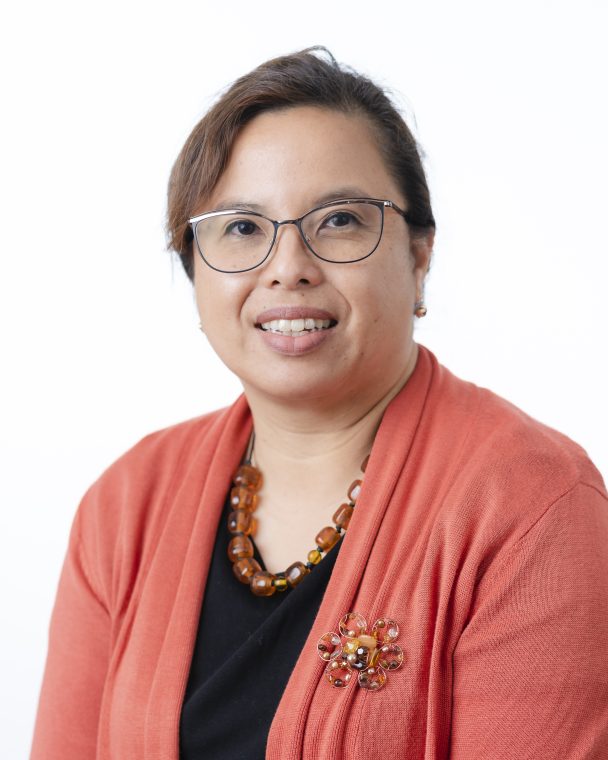
Program Manager, Mastercard Foundation